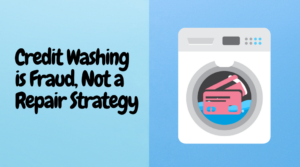As more companies use personal credit to make decisions about you, bad credit can’t be ignored.
Every industry from car insurance to getting utilities turned on can depend on credit history. Ignoring bad credit is a mistake because often you don’t know when your credit history might be used for an important decision concerning basic needs.
While you certainly can live with bad credit, it’s going to cost you in many ways. A good credit history and score can you save money and make your financial life run smoother.
8 reasons you cannot ignore bad credit
1. Insurance
Whether you need car, life, home or even business insurance, your credit history can affect what you pay for insurance premiums. Many insurance companies pull your credit report and utilize a specific credit scoring model designed for the insurance industry. As you can imagine, the lower your insurance score, the higher you pay in insurance premiums.
2. Home Ownership
The housing crisis caused banks and lenders to tighten lending standards. Not only is it harder to get approved for a mortgage loan it has become increasingly expensive to rent an apartment. Apartment rents have increased across the country, perhaps an unintended consequence of increased foreclosures; nevertheless, bad credit can determine where you live.
3. Employment Opportunities
The job market continues to recover but unemployment remains high for some, especially African-Americans. Once you factor in many employers pulling your credit report, you have a recipe for disaster. Bad credit may prevent you from entering the job market and for those currently working bad credit may even cost you a promotion.
4. Renting a Car
Vacations, car repairs or emergencies — you may have to rent a car at any time. Many car rental companies require you have a credit card to rent, if not, you may be able to pay a large deposit to rent. However, some car rental companies will run your credit before they will allow you to rent using cash or a debit card.
5. Low credit limits
Credit cards for bad credit often come with lower credit limits. This can cause your credit score to decrease even more if you charge 30% or more of your available credit limit. Let’s say you get a credit card with a $300 limit. In order to improve your credit score you should not charge more than $90. This can be difficult. It is fairly easy to get near or over a $300 credit limit. Maxing out or using most of your available credit limit will lower your credit scores. Bad credit can keep you in a vicious cycle, hindering you from improving your credit scores.
6. Security deposits
Basic needs such as electricity, gas and water have entered into the credit arena. Most utility companies check your credit. There could be some justification for this practice. Utility companies in a way extend credit to you by providing a service and charging you after use of that service. Bad credit can cause you to pay a higher security deposit for utility services.
7. Cash is not always king
Carrying cash is not always safe but more importantly paying cash for items such as electronics or appliances can leave you unprotected. Major credit card companies allow cardholders to dispute purchases, regardless of the store’s return and refund policies. Customers who use credit cards have an extra layer of protection for goods and services. Paying cash does not allow for that extra protection.
8. Peace of mind
Bad credit can be a nightmare, especially when you need to use credit immediately. Having bad credit can make you dependent on a co-signor. It is not always simple to find someone with good credit to co-sign for you. It puts a co-signor on the line for your financial needs. Many people will not co-sign for anything or anyone. Good credit can give you peace of mind and keep you financially independent.


















